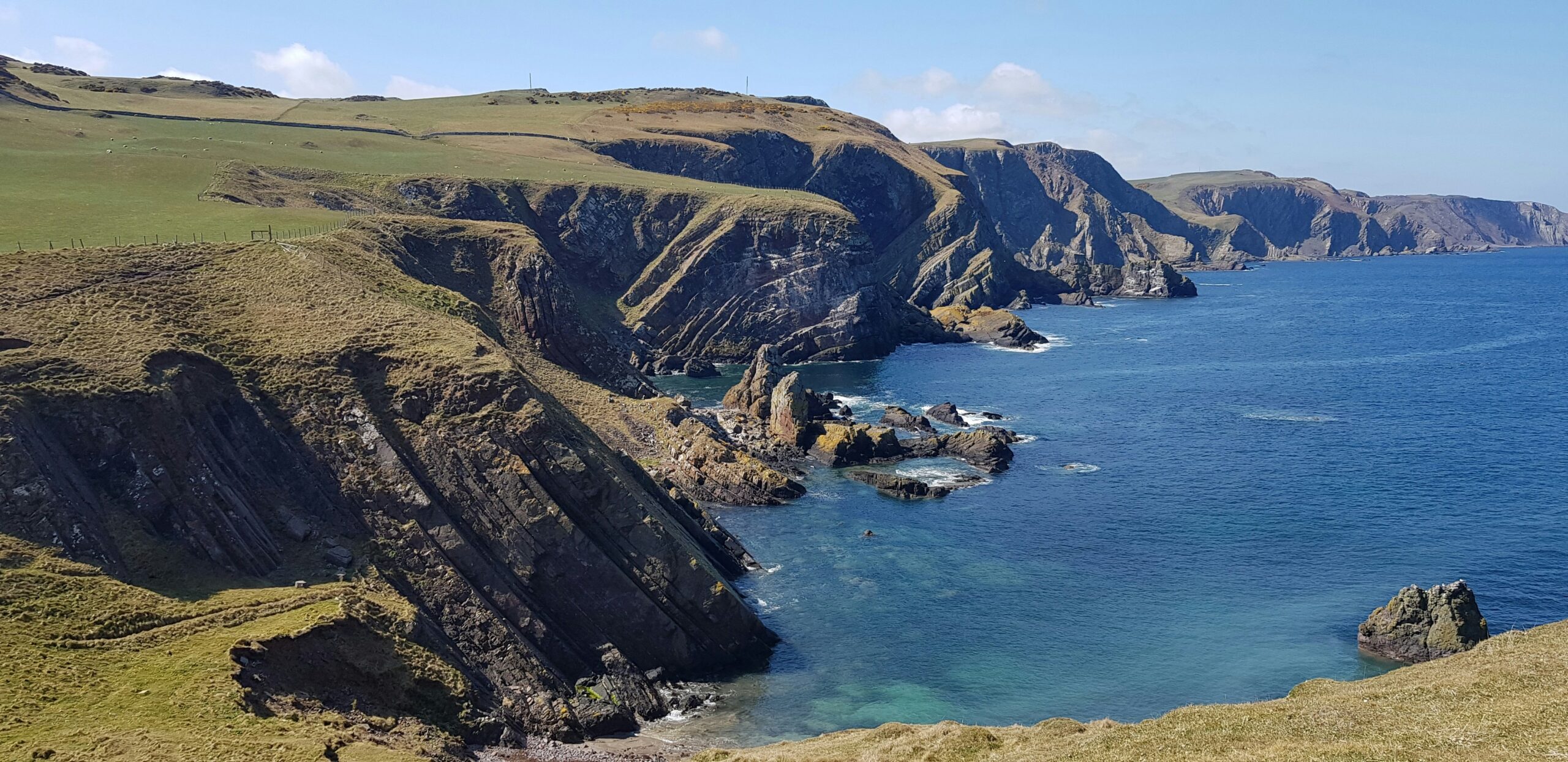Photo of Gannets on Bass Rock by Kristin Snippe
The Scottish Government has approved one of the world’s largest offshore wind farms, the Berwick Bank project, despite fierce opposition from conservation groups who warn it could drive vulnerable seabird species toward extinction.
The 4.1 gigawatt development, located 23 miles off Scotland’s east coast in the North Sea, will feature up to 307 turbines and generate enough electricity to power every household in Scotland twice over. The project has the potential to meet approximately 17% of UK household energy needs.
Government position on climate and energy security
Deputy First Minister Kate Forbes defended the decision, stating that “Ministers have given the Berwick Bank wind farm application extremely careful consideration.” She described the approval as “a major step in Scotland’s progress towards achieving net zero and tackling the climate crisis, as well as supporting national energy security and growing our green economy.”
UK Energy Secretary Ed Miliband welcomed the decision, saying it “puts us within touching distance of our offshore wind targets to deliver clean power by 2030 – boosting our mission to make Britain a clean energy superpower.” He added that it marked a “huge step forward in Britain’s energy security and getting bills down for good.”
Conservation groups sound extinction alarm
The approval has prompted severe criticism from marine conservation organisations, with RSPB Scotland leading opposition to the project. Anne McCall, Director of RSPB Scotland, described the decision as “a very dark day for seabirds,” calling it “a terrible decision on a really bad development.”
“Berwick Bank would be catastrophic for Scotland’s globally important seabirds which are already facing alarming declines,” McCall stated. “We are incredibly concerned that Scottish Government have granted consent for a project which could catapult some of Scotland’s most-loved seabird species towards extinction.”
The development is situated near critical seabird habitats, including the Bass Rock – home to one of the world’s largest gannet colonies – and the St Abbs Head National Nature Reserve. Conservation groups estimate the wind farm will kill tens of thousands of seabirds over its lifetime, including kittiwakes, puffins, and gannets.
Harry Huyton, chief executive of North Berwick’s Scottish Seabird Centre, called the approval “devastating news for seabirds, with tens of thousands expected to be killed by the development.” He noted that the decision appeared to ignore concerns raised by nature charities and the advice of the Government’s own adviser, NatureScot, who also objected to the development.
Photo from St Abbs Head by Katherine Carlyon
Broader impacts on marine conservation policy
The RSPB Scotland highlighted that the project’s impacts extend beyond direct seabird mortality. McCall warned that “its impacts are so damaging they will make the relative impacts of other windfarms significantly higher. This one windfarm is going to make it really challenging to accelerate renewable projects across Scottish seas.”
Conservation groups argue this approval sets a concerning precedent for future offshore wind developments in sensitive marine areas. The project is described by RSPB Scotland as “one of the most damaging windfarms for birds we are aware of anywhere on the planet.”
Conditional consent and compensation requirements
The Scottish Government has made the project’s approval conditional on developer SSE Renewables producing a detailed seabird compensation plan. This plan must outline how adverse impacts on seabirds will be addressed and requires approval from Scottish Ministers before construction can proceed.
However, conservationists remain sceptical about the effectiveness of such compensation measures. The National Trust for Scotland’s Diarmid Hearns described the decision as “deeply disappointing,” noting that “the proposed mitigations by the developers fell far short of alleviating the expected impacts in terms of fatalities and disruption.”
Economic and industry perspectives
SSE Renewables emphasised the project’s economic benefits, with the company stating it could create thousands of jobs and inject £8.3 billion into the economy over its lifetime. Managing director Stephen Wheeler described the consent as “hugely welcome,” saying the project could “rapidly scale-up Scotland’s operational renewable energy capacity.”
RenewableUK’s Deputy Chief Executive Jane Cooper called the approval “a pivotal milestone for Britain’s energy transition”, highlighting that the project “will be one of the world’s largest wind farms, just off the Firth of Forth, bringing with it billions of pounds of new investment to Scotland and UK coastal economies.”
Cooper emphasised the employment potential, stating that “with the successful roll out of offshore wind, we could see jobs in the sector rise from 55,000 today to around 100,000 by 2030. These are high-quality jobs, from engineering and port logistics to service and maintenance, sustaining livelihoods over decades.”
Russell Borthwick, chief executive of Aberdeen & Grampian Chamber of Commerce, called the approval “a great leap forward for Scotland’s offshore wind industry” with “fantastic opportunities ahead for the energy workforce and the world-class supply chain based here.”
Political response and energy policy debate
The approval has also sparked broader debate about energy policy. Scottish Conservative net zero and energy spokesman Douglas Lumsden argued that wind power alone is insufficient, stating: “Scotland will only prosper with a realistic energy policy that draws on nuclear, oil and gas and renewables.”
Lumsden criticised both Scottish and UK government policies, claiming “the hostility of both the SNP and Labour governments to North Sea oil and gas is costing an estimated 400 jobs a fortnight and increasing our reliance on imported fossil fuels.”
International context
The approval comes amid renewed criticism of wind energy from US President Donald Trump, who recently stated during a visit to Scotland: “You fly over and you see these windmills all over the place, ruining your beautiful fields and valleys and killing your birds, and if they’re stuck in the ocean, ruining your oceans. Stop the windmills.”
Looking forward
Conservation groups indicated they would be reviewing the decision and considering their next steps. The Scottish Seabird Centre stated it would “review the decision and consider its next steps,” while RSPB Scotland said it would be “carefully scrutinising the details of the consent documents over the coming hours and days.”
The approval represents a significant test case for balancing renewable energy development with marine conservation in Scottish waters, with implications for future offshore wind projects in ecologically sensitive areas across the UK and beyond.
The project’s ultimate fate now depends on the approval of the seabird compensation plan, which will need to satisfy Scottish Ministers that adequate measures are in place to offset the predicted environmental impacts.

